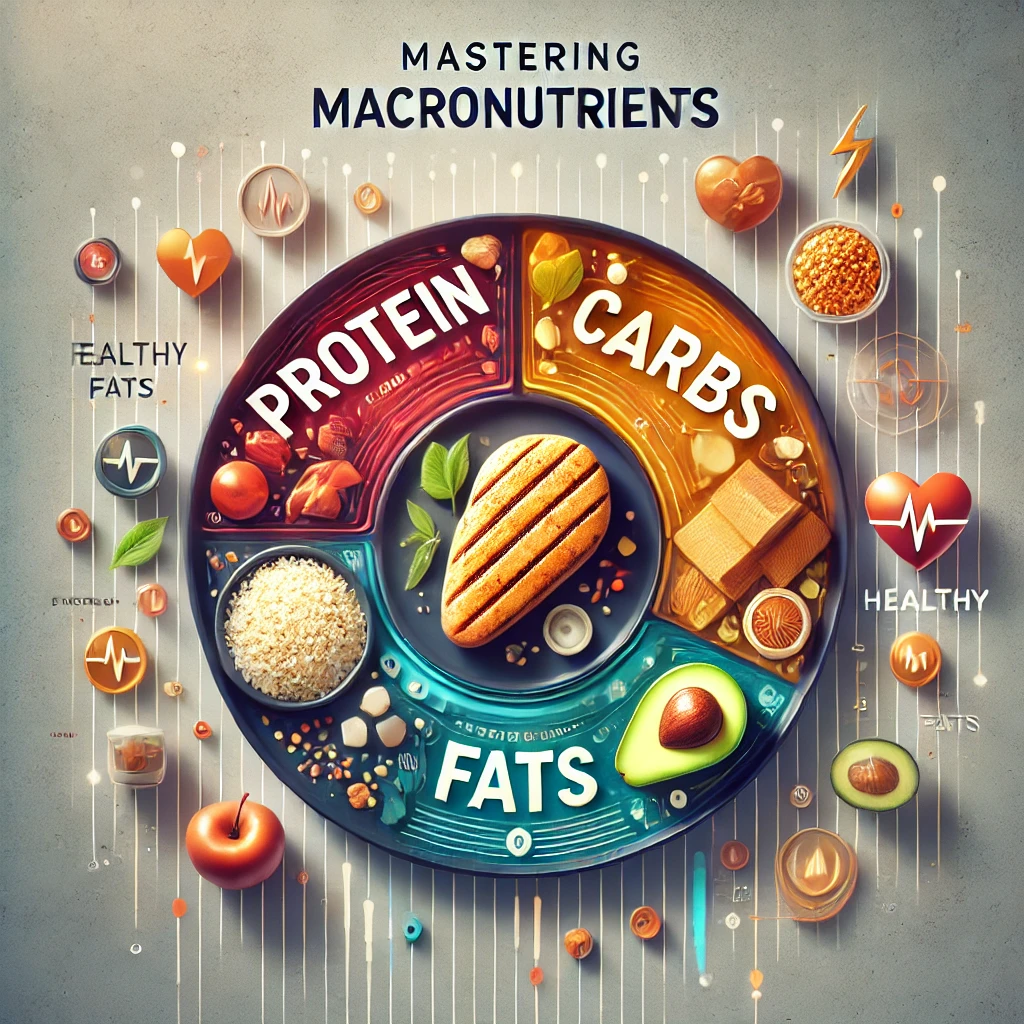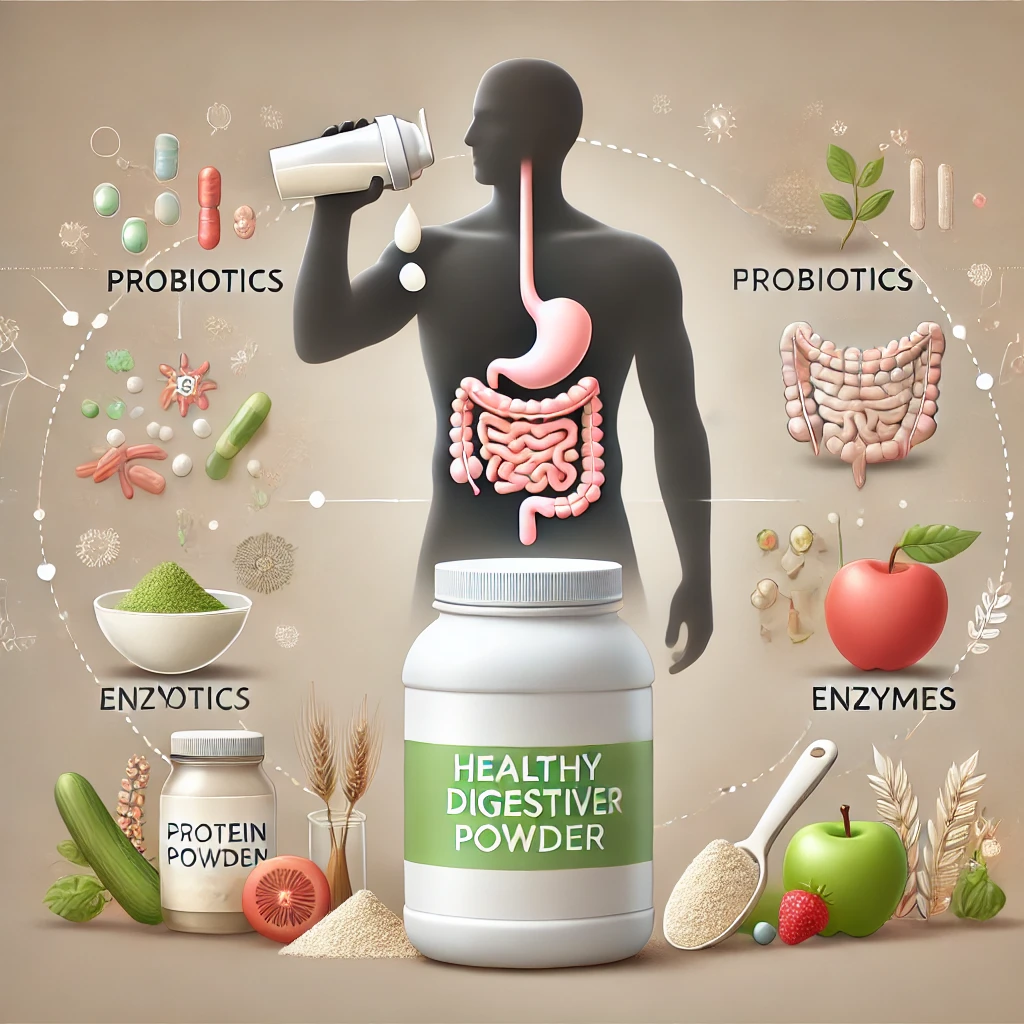Introduction
Achieving a balanced diet requires a fundamental understanding of macronutrients: proteins, carbohydrates, and fats. Each of these nutrients plays a critical role in sustaining bodily functions, fueling our daily activities, and ensuring our long-term health. This article explores the pivotal roles, sources, and optimal intake of these essential nutrients, aiming to equip you with the knowledge to make informed dietary choices.
Table of Contents
What are Macronutrients?
Macronutrients are the nutrients that the body needs in large amounts to maintain normal physiological functions and to provide energy. They are categorized into three groups:
- Proteins
- Carbohydrates
- Fats
Each type serves a unique purpose and is vital for different bodily functions.
Proteins
What Is Protein?
Protein is one of the three macronutrients essential for human health. It is composed of amino acids, which are the building blocks for most structures and functions within the body.
Proteins are crucial for almost every bodily process, from cellular structure and health to the production of enzymes and hormones. Their continuous supply ensures the body operates efficiently and effectively.
Protein as a Building Block of Life
The Role of Protein in Cell Structure
Proteins are fundamental components of cellular architecture, providing both structural support and functionality to cells and tissues.
Protein and Tissue Repair
Proteins play a vital role in the healing and regeneration of tissue, including muscles, skin, and internal organs, facilitating recovery from injury and illness.
Types of Proteins in the Body

Structural Proteins
These proteins, such as collagen and elastin, provide strength and support to tissues and organs throughout the body.
Enzymatic Proteins
These are catalysts in biochemical reactions, crucial for processes such as digestion and metabolism.
Transport Proteins
Transport proteins carry substances across cellular membranes and throughout the body, like hemoglobin which transports oxygen in the blood.
Defensive Proteins
These include antibodies that protect the body from pathogens, playing a critical role in the immune response.
Protein and Metabolism
Enzymes as Catalysts in Metabolic Pathways
Enzymes speed up metabolic processes, facilitating the body’s ability to function and respond to environmental changes.
The Role of Protein in Energy Production
While not a primary energy source, protein plays a key role in generating and regulating energy during metabolism, especially when carbohydrate resources are low.
Dietary Protein
Sources of Dietary Protein
Dietary proteins can be found in a variety of animal and plant products, each offering different profiles of essential amino acids.
Animal vs. Plant Protein
Animal proteins are complete sources containing all essential amino acids, while plant proteins often need to be combined to form a complete protein profile.
Daily Protein Requirements
Protein needs vary by age, sex, weight, and activity level, with general recommendations set by health organizations around the world.
The Role of Protein in Muscle Health

Protein and Muscle Repair
After physical activity, proteins repair and rebuild muscle fibers, enhancing strength and mass over time.
Protein in Muscle Growth
Proteins stimulate muscle growth through their role in muscle protein synthesis, critical during weight training and other forms of exercise.
Protein and Immune Function
How Antibodies Work
Antibodies, or immunoglobulins, are proteins that recognize and bind to specific antigens, such as viruses and bacteria, marking them for destruction.
Protein’s Role in Supporting Immunity
Proteins facilitate the production and activity of immune cells and antibodies, bolstering the body’s defense mechanisms against infections.
Protein in Hormone Regulation
Protein Hormones and Their Functions
Many hormones, such as insulin and growth hormones, are proteins themselves, essential for regulating bodily processes like glucose metabolism and cell growth.
The Impact of Protein Deficiency on Hormones
Insufficient protein intake can disrupt hormone production, affecting everything from metabolic rate to reproductive health.
The Risks of Protein Deficiency

Symptoms of Protein Deficiency
Early signs include muscle weakness, hair loss, and weakened immunity, among others.
Long-Term Effects of Insufficient Protein
Chronic protein deficiency can lead to severe health issues, including organ failure, impaired healing, and increased susceptibility to infections.
Protein Supplementation
Benefits of Protein Powders and Supplements
Supplements can help meet protein needs, especially for athletes, those recovering from injury, or individuals with higher requirements.
Who Should Consider Protein Supplements?
While not necessary for everyone, supplements can benefit those who struggle to meet protein needs through diet alone, such as vegetarians, vegans, and some older adults.
How Much Protein Do You Need?
The recommended dietary allowance (RDA) for protein is about 0.8 grams per kilogram of body weight per day for the average adult. However, needs may vary based on age, sex, physical activity level, and health status. Athletes, for example, may require up to 2 grams per kilogram of body weight.
Carbohydrates
What Are Carbohydrates?
Carbohydrates are one of the three main macronutrients essential to human health, alongside proteins and fats. They are organic compounds composed of carbon, hydrogen, and oxygen, primarily found in plant-based foods. Carbohydrates serve as the body’s preferred source of energy, powering everything from basic cellular functions to intense physical activities. They are categorized into sugars, starches, and fibers, each playing a unique role in the diet.
Why Are Carbohydrates Essential for the Body?
Carbohydrates aren’t just an energy source—they are vital for numerous physiological functions. They fuel the brain, support the immune system, and help maintain intestinal health through dietary fiber. While often misunderstood due to diet trends, carbohydrates are integral to balanced nutrition and optimal body performance. Without adequate carbohydrate intake, the body may resort to breaking down proteins for energy, which can lead to muscle loss and other health issues.
Types of Carbohydrates

Simple Carbohydrates
Simple carbohydrates, also known as sugars, are quickly digested and absorbed by the body. Found naturally in fruits, milk, and honey, they also appear in processed foods like candies and sodas. These carbs provide rapid energy but can lead to blood sugar spikes if consumed in excess. Moderation is key when including simple carbs in your diet.
Complex Carbohydrates
Complex carbohydrates, such as starches, are found in whole grains, legumes, and vegetables. These carbs are digested more slowly, offering sustained energy and a steady release of glucose. Unlike their simple counterparts, complex carbs are rich in nutrients and fiber, making them essential for a balanced diet.
Fiber as a Unique Carbohydrate
Fiber, though technically a carbohydrate, is unique in that it is not digested by the body. Instead, it aids in digestive health, regulates blood sugar levels, and promotes a feeling of fullness, which can assist in weight management. Foods like oats, beans, and fruits are excellent sources of dietary fiber.
The Function of Carbohydrates in the Body
Carbohydrates as a Primary Energy Source
When consumed, carbohydrates are broken down into glucose, which serves as the body’s primary energy currency. This energy is vital for brain function, muscle activity, and metabolic processes. Without sufficient carbohydrates, fatigue and reduced performance are common.
The Role of Glycogen in Energy Storage
Excess glucose is stored in the liver and muscles as glycogen. During periods of fasting or intense physical activity, glycogen reserves are broken down to maintain energy levels. This storage system ensures that the body has access to energy even when dietary carbs are temporarily unavailable.
Dietary Sources of Carbohydrates

Whole Grains
Whole grains like brown rice, quinoa, and oats are excellent sources of complex carbohydrates. Packed with nutrients and fiber, they support sustained energy levels and overall health.
Fruits and Vegetables
Fruits and vegetables offer natural sugars along with vitamins, minerals, and antioxidants. Bananas, sweet potatoes, and berries are prime examples of nutrient-rich carbohydrate sources.
Processed and Refined Carbohydrates
Refined carbohydrates, such as white bread and pastries, lack essential nutrients due to processing. While they provide quick energy, frequent consumption can lead to weight gain and blood sugar imbalances. Opt for whole food alternatives whenever possible.
Carbohydrates and the Brain
Glucose as Brain Fuel
The brain relies exclusively on glucose for energy under normal circumstances, making adequate carbohydrate intake essential for cognitive function.
Effects of Low-Carb Diets on Cognitive Function
Restricting carbohydrates can lead to reduced cognitive function, as the brain may not receive enough glucose to perform optimally.
The Role of Carbohydrates in Athletic Performance
Carbohydrates and Endurance
Adequate carbohydrate intake is crucial for maintaining endurance and performance in prolonged physical activities.
Post-Workout Recovery and Carbs
Consuming carbohydrates after exercise replenishes glycogen stores, aiding in recovery and preparation for future physical activity.
Carbohydrates and Weight Management
Myths About Carbs and Weight Gain
Misconceptions persist that carbohydrates lead to weight gain, but it is the type of carbohydrate and overall calorie intake that matters most.
The Importance of Balanced Carb Intake
A balanced intake of carbohydrates can support a healthy weight and overall wellness, especially when focusing on whole, fiber-rich sources.
The Role of Fiber in Health
Digestive Health Benefits of Fiber
Fiber aids in digestive health by preventing constipation and promoting regular bowel movements.
Fiber’s Role in Blood Sugar Regulation
By slowing the digestion of carbohydrates, fiber helps regulate blood sugar levels, which is crucial for managing diabetes and maintaining energy levels.
Risks of Carbohydrate Deficiency
Symptoms of Low-Carb Diets
Symptoms can include fatigue, headaches, and poor cognitive function due to insufficient glucose supply to the brain.
Long-Term Health Implications of Insufficient Carbs
Chronic low intake can lead to energy deficiency, affecting overall health and metabolic functions.
Balancing Carbohydrate Intake
How Much Carbohydrate Do You Need?
The amount varies based on age, gender, activity level, and health goals. Generally, carbs should make up about 45-65% of daily caloric intake according to dietary guidelines.
Tips for a Balanced Diet
Incorporate a variety of carbohydrate sources, especially whole grains and fiber-rich foods, to ensure a balanced intake that supports overall health.
Fats
What Are Fats?
Fats are one of the three essential macronutrients, alongside proteins and carbohydrates. They are composed of fatty acids and glycerol, forming molecules that store energy, build cells, and support various bodily functions. Found in both plant and animal sources, fats are categorized into several types based on their chemical structure and health effects.
Despite their often-negative reputation in diet culture, fats are critical for survival. They provide more than twice the energy per gram compared to carbohydrates and proteins and play roles far beyond simple calorie provision.
Why Are Fats Important for the Body?
Fats are crucial for energy storage, hormone production, and protecting vital organs. They act as a cushion for internal structures and help maintain body temperature. Additionally, fats enable the absorption of fat-soluble vitamins like A, D, E, and K, ensuring proper metabolic and immune functions.
Fats are not just functional; they also enhance the flavor and texture of food, making meals satisfying. However, understanding the types of fats and their health impacts is key to making informed dietary choices.
Types of Fats

Saturated Fats
Saturated fats are primarily found in animal products like meat, butter, and cheese, as well as tropical oils such as coconut oil. These fats are solid at room temperature and have been associated with increased cholesterol levels when consumed in excess. While they are not inherently bad, moderation is important, as overconsumption can contribute to heart disease.
Unsaturated Fats
Unsaturated fats are considered the healthiest type of dietary fat. They are liquid at room temperature and are commonly found in plant-based oils, nuts, seeds, and fatty fish.
- Monounsaturated Fats
Found in foods like olive oil, avocados, and almonds, monounsaturated fats are known for their heart-health benefits. They help reduce bad cholesterol (LDL) levels while increasing good cholesterol (HDL). - Polyunsaturated Fats
Polyunsaturated fats, such as omega-3 and omega-6 fatty acids, are essential fats the body cannot produce on its own. They are found in fatty fish, walnuts, flaxseeds, and sunflower oil, playing key roles in brain health and inflammation reduction.
Trans Fats
Trans fats are artificially created through a process called hydrogenation, often found in processed foods like margarine, baked goods, and fast food. These fats are harmful and linked to heart disease, diabetes, and other chronic conditions. Health experts recommend avoiding trans fats entirely.
Functions of Fats in the Body
Fats as an Energy Source
Fats are the most concentrated source of energy in the diet, providing 9 calories per gram. When carbohydrate reserves are depleted, the body turns to fats for fuel, especially during prolonged physical activity or fasting periods.
Role of Fats in Cell Structure
Fats are essential for building cell membranes, which are composed of lipid bilayers. These membranes protect cells and facilitate the transport of nutrients and signals. Without fats, cells would lose their structure and functionality.
Fats and Hormone Production
Fats are critical for synthesizing hormones, including sex hormones like estrogen and testosterone. Cholesterol, a type of fat, is a precursor for many hormones and plays a role in regulating various physiological processes.
Dietary Sources of Fats
Healthy Fats from Plants
Plant-based sources like nuts, seeds, avocados, and olive oil are rich in unsaturated fats. These foods are heart-healthy and provide additional nutrients like fiber, vitamins, and minerals.
Animal-Based Fat Sources
Animal fats, found in meat, butter, and dairy, can be a source of both healthy and unhealthy fats. Choosing lean cuts of meat and consuming moderate amounts of full-fat dairy can provide beneficial nutrients without excessive saturated fat.
Processed Fats in Packaged Foods
Processed fats, such as hydrogenated oils, are commonly used in snacks, fried foods, and baked goods. These fats are often high in trans fats and should be avoided to prevent health risks like heart disease.
Fats and Brain Health
Importance of Omega-3 Fatty Acids
Omega-3 fatty acids are crucial for brain function and development. They are powerful anti-inflammatory agents and are essential for mental health.
How Fats Influence Cognitive Function
Fats play a key role in brain health, influencing everything from memory to mood regulation.
Fats and Heart Health
The Role of Fats in Cholesterol Levels
Fats affect the levels of HDL and LDL cholesterol in the blood, influencing heart disease risk.
Balancing Good and Bad Fats
It’s crucial to balance the intake of various types of fats to promote heart health and reduce the risk of heart disease.
Fats and Weight Management
Myths About Fats and Weight Gain
Not all fats are equal, and healthy fats are an important part of a balanced diet. They do not necessarily lead to weight gain and can be part of a weight loss strategy.
The Role of Healthy Fats in a Balanced Diet
Incorporating healthy fats into the diet can help maintain long-term health, assist in weight management, and reduce disease risk.
Risks of Fat Deficiency
Symptoms of Inadequate Fat Intake
Signs include dry skin, hair loss, and hormonal imbalances.
Long-Term Health Effects of Fat Deficiency
Chronic low intake can lead to deficiencies in fat-soluble vitamins and essential fatty acids, affecting overall health.
Dangers of Excess Fat Consumption
Health Issues Linked to High Fat Intake
Excessive intake of unhealthy fats can lead to obesity, heart disease, and other metabolic disorders.
How to Monitor and Moderate Fat Consumption
It’s important to read food labels, avoid trans fats, and limit high-fat processed foods.
Choosing the Right Fats for Your Diet
How to Identify Healthy Fats
Look for fats that remain liquid at room temperature and are derived from natural sources.
Practical Tips for Incorporating Good Fats
Include a variety of sources like nuts, seeds, fish, and olive oil, and cook using healthy fat options.
Conclusion
Understanding the roles, benefits, and sources of proteins, carbohydrates, and fats helps in making healthier dietary choices. A balanced intake of these macronutrients supports bodily functions, enhances health, and contributes to disease prevention. Tailoring your diet to your personal needs, while considering the quality and quantity of these macronutrients, is key to maintaining optimal health.









